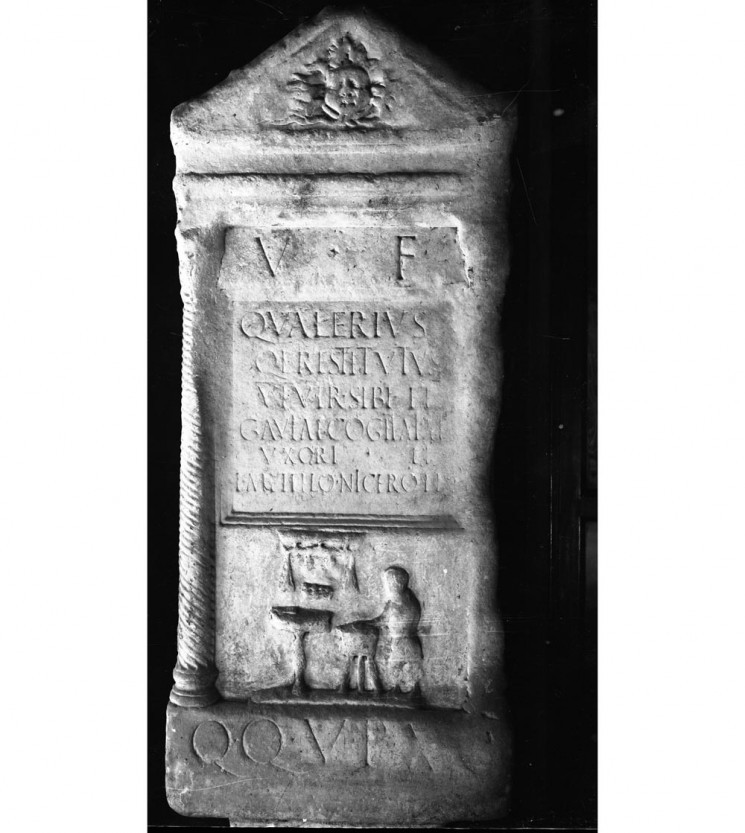Funerary stele, made of limestone, of the freedman and sevir Q. Valerius Restitutus. Still alive, he
Funerary stele, made of limestone, of the freedman and sevir Q. Valerius Restitutus. Still alive, he erected the funeral monument for himself, for his wife and for Lucius Metellus Niceros. The structure has two columns on the sides with corinthian capitals, a pediment with Gorgon’s face, and perhaps two corner acroteria in the shape of lions. There is a bass-relief in the lower part with an artisan, maybe an aurifex brattiarius, a jewellery maker, or a lanius, butcher. The second hypothesis is supported by the discovery of a boundary stone with the figure of a bull on the pediment and an inscription which indicates the same dimensions of the funerary area (20 x 20 roman feet).The text reads:V(ivus) f(ecit) / Q(uintus) Valerius / Q(uinti) l(ibertus) Restitutus / VIvir sibi et / Gaviae Cogitatae / uxori et / L(ucio) Metello Niceroti / q(uo)q(uo)v(ersus) p(edes) XXFirst half of 1st century AD@ Archaeological Museum of Bologna -- source link
Tumblr Blog : apuleiaprimilla.tumblr.com
#funerary#inscription#epigraphy#roman history#limestone#latin epigraphy#freedman#artisan#funerary area#bologna#museum#archaeology#roman art#ancient rome#ancient history#history#epigrafia#latin language#latin inscription#relief#gorgon#funerary monument
